Resignation Letter Template for Health and Stress Reasons
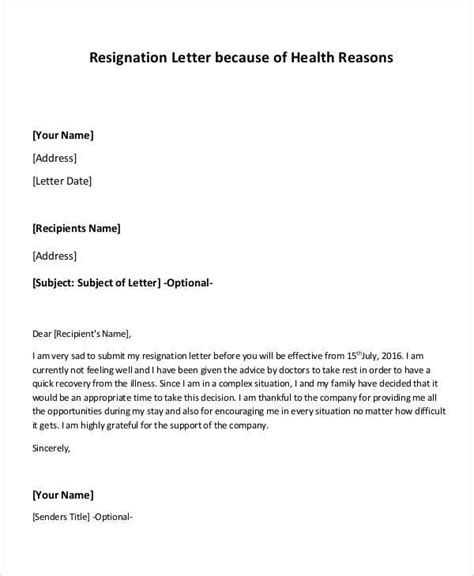
When personal challenges begin to interfere with professional responsibilities, stepping away from a role can be a necessary decision. It’s important to recognize when the pressure from physical or mental strain becomes too much to handle, and a break is the best option. Writing a thoughtful note to inform your employer can help make this transition smoother for both parties.
Communicating your need to leave work temporarily or permanently requires a balance of honesty and professionalism. By expressing your reasons clearly yet tactfully, you can maintain a positive relationship with your employer, even if your departure is unexpected. This is especially important when you need to focus on recovery and self-care, without additional stress.
Understanding the Need for a Resignation Letter
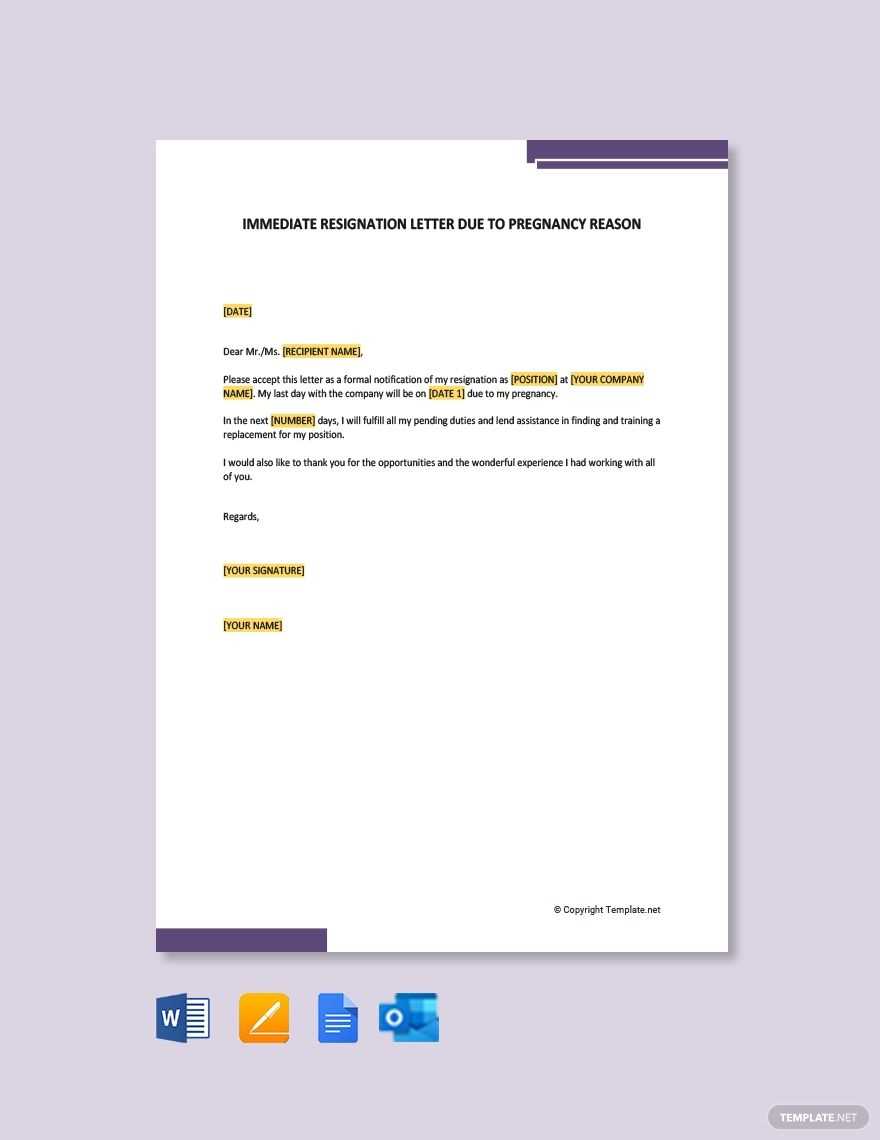
Leaving a job can be a difficult decision, especially when personal circumstances are involved. Whether the reason is physical or emotional, it’s crucial to communicate the decision effectively to your employer. A well-crafted notification can ensure a smooth transition and help maintain professionalism during a challenging time.
Importance of Clear Communication
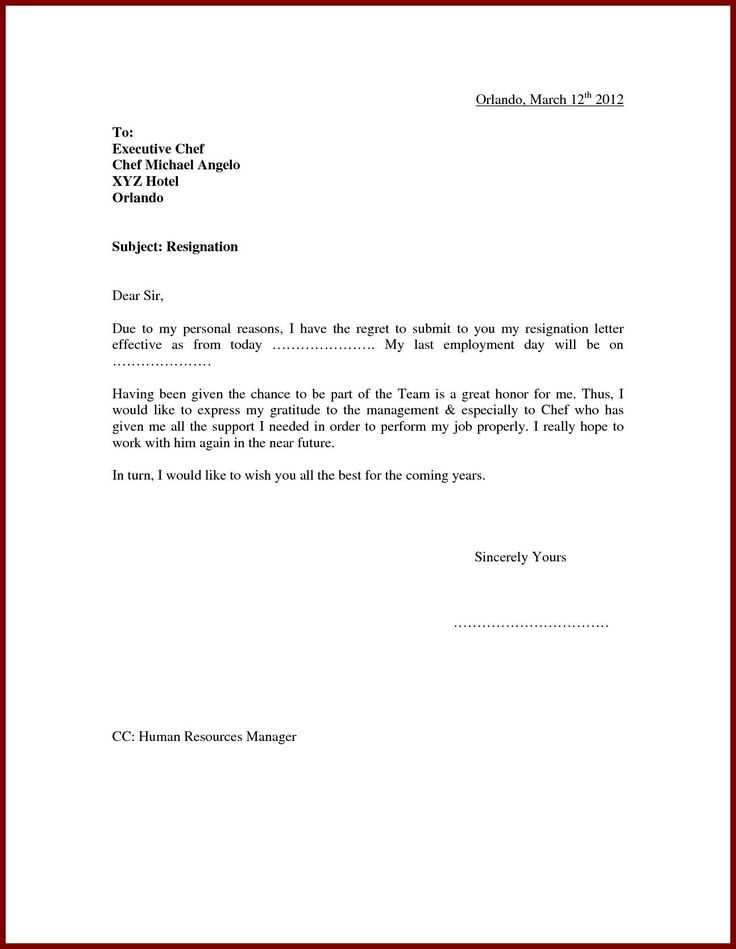
Clearly communicating your intent to leave is essential to avoid misunderstandings. This message should express your need to step back while also showing appreciation for the opportunities provided by the role. It’s vital to be transparent without over-explaining the personal details that led to this choice.
Maintaining Professional Relationships
Even when stepping away for personal reasons, it’s important to leave on a positive note. Maintaining a respectful tone and offering gratitude for the time spent in the role can ensure a lasting positive impression. This approach also leaves the door open for potential future collaboration once your situation improves.
Why Health Issues Require a Formal Resignation
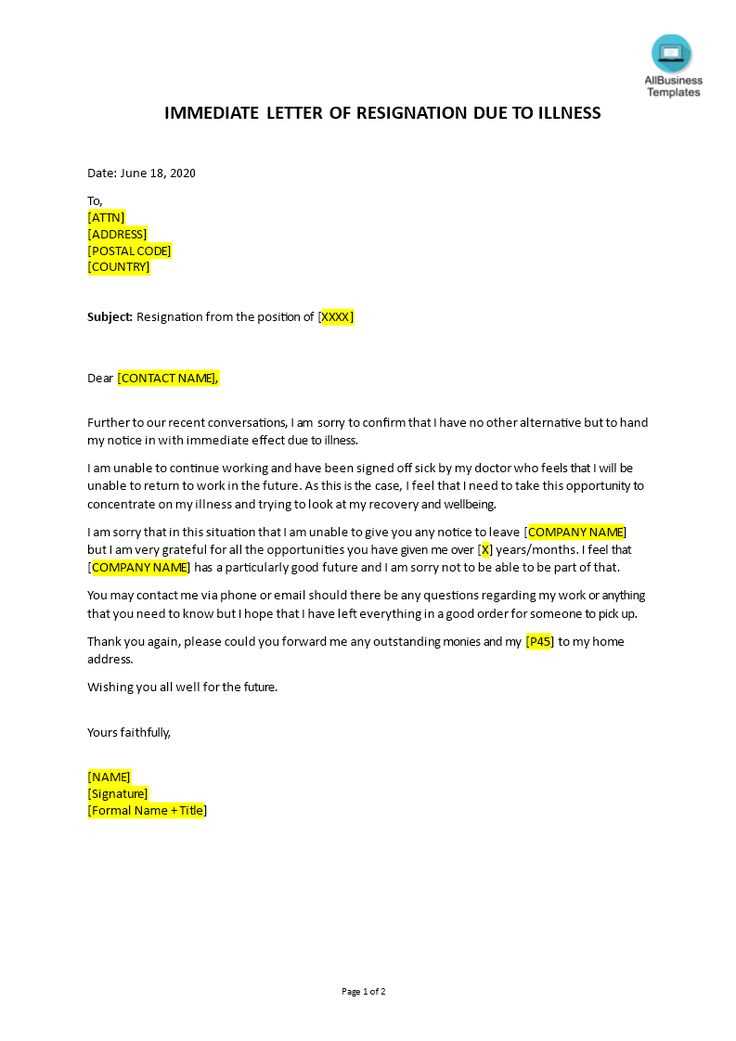
When personal well-being is compromised, it may become impossible to fulfill professional duties. In such cases, stepping away from a role becomes necessary to prioritize recovery. This formal process helps ensure clarity, protects both parties, and allows time for healing without additional pressure from work obligations.
Professionalism in Difficult Situations
Even when facing a challenging time, approaching the situation with professionalism helps maintain respect. A formal approach offers a clear boundary between personal matters and the work environment, ensuring that both your needs and the company’s expectations are met with understanding.
Legal and Workplace Considerations
In certain circumstances, leaving the workplace for personal reasons requires proper documentation. This ensures compliance with workplace policies and legal requirements, safeguarding both the employee and employer. Providing a formal notice also helps avoid confusion about the duration of absence or any potential legal ramifications regarding job status.
How Stress Affects Job Performance
When an individual faces overwhelming pressure, it can impact their ability to concentrate, make decisions, and complete tasks efficiently. The physical and mental toll of such strain often leads to a decrease in productivity and overall job performance. As the burden increases, employees may find themselves unable to perform at their usual level of effectiveness, which can affect both personal well-being and workplace outcomes.
Chronic tension can also lead to burnout, making it difficult to maintain enthusiasm or motivation. The longer someone operates under high levels of pressure, the more challenging it becomes to stay focused and meet deadlines. Ultimately, the impact extends beyond the individual, affecting team dynamics and company goals.
Identifying Signs That It’s Time to Resign
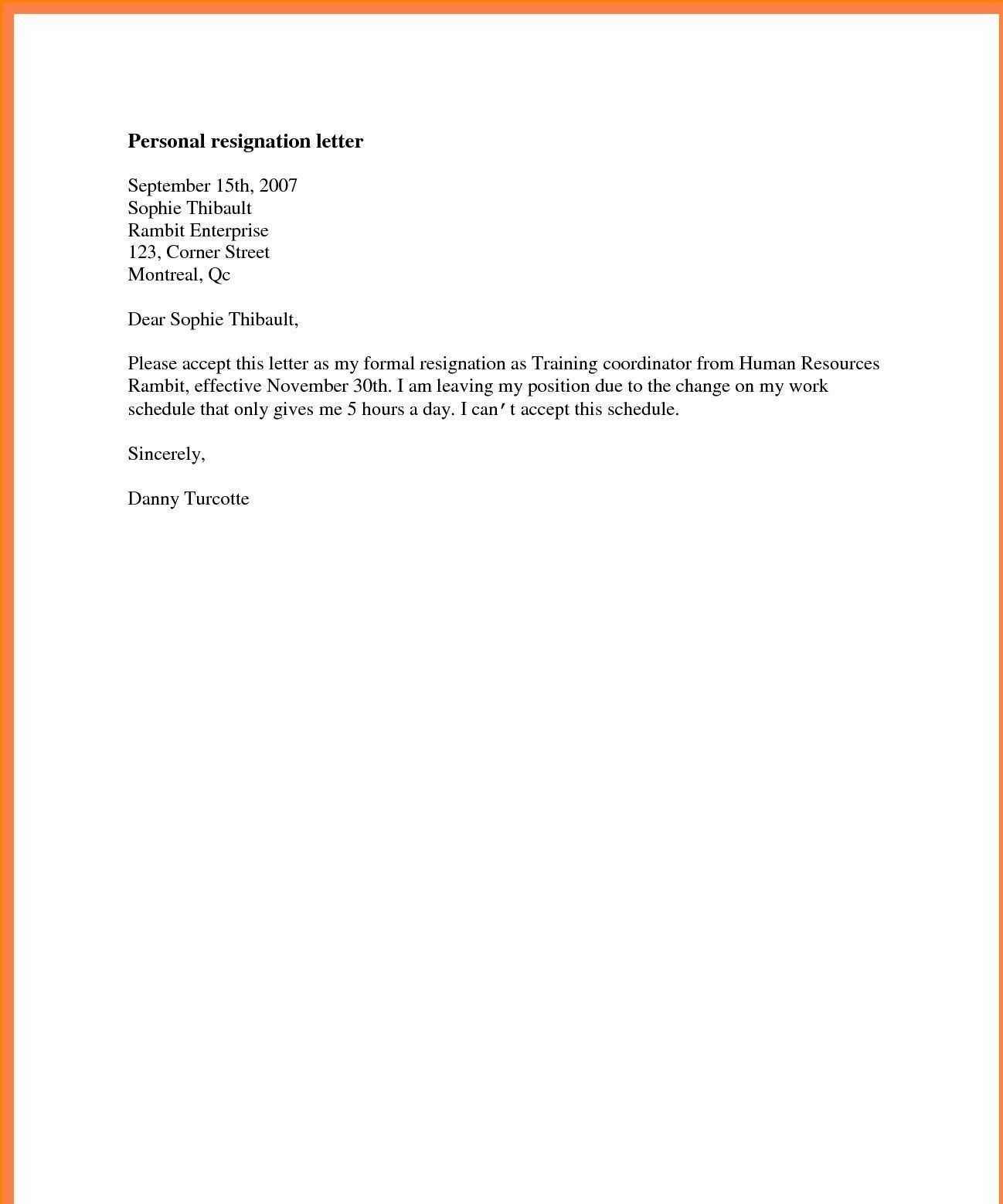
Sometimes, the signs that it’s time to step away from work are subtle at first but become more apparent over time. Recognizing these early indicators can help prevent further complications and allow for a smoother transition. Constant fatigue, lack of motivation, or growing dissatisfaction can all be signs that it may be time to make a change for personal well-being.
Persistent Exhaustion is one of the most common signs that your body and mind are signaling the need for a break. If you consistently feel drained, even after rest, it might indicate that your current situation is unsustainable. Feeling overwhelmed by simple tasks or struggling to keep up with daily responsibilities can also be a red flag. These symptoms often point to the need for a more significant change.
Key Elements of a Health Resignation Letter
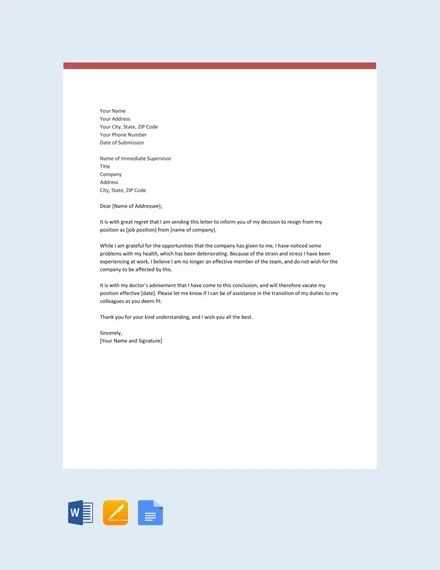
When crafting a message to inform your employer about your need to step away from work, it’s important to include certain key details to ensure clarity and professionalism. A well-structured communication helps both parties understand the situation without unnecessary confusion.
- Clear Explanation: Briefly mention the reason for leaving, focusing on the need for personal time without going into too much detail. It’s essential to strike a balance between transparency and privacy.
- Appreciation: Show gratitude for the opportunity to work with the company. Acknowledge the support or experiences gained during your time in the role.
- Notice Period: If possible, offer to provide a transition period to help ease the handover of duties. If immediate departure is necessary, explain your situation respectfully.
- Professional Tone: Maintain a respectful and professional tone throughout the message. Even if leaving due to difficult personal reasons, leaving on a positive note is important.
Crafting a Professional Yet Honest Message
When informing your employer about your decision to step away from your role, it’s important to strike a balance between honesty and professionalism. While it’s essential to communicate the reasons for your departure, the message should remain respectful and constructive. By being clear and direct, you can ensure that your intentions are understood without oversharing personal details.
Being Transparent Without Oversharing
While it’s important to be upfront, the level of detail you include should be carefully considered. A general explanation, focusing on personal needs without delving too deeply into specific issues, can maintain professionalism while still being honest. Keeping the message focused on your decision and its impact on your ability to continue in your role is key.
Maintaining a Positive Tone
Even if leaving is the result of difficult circumstances, it’s essential to express gratitude for the time spent in the position. A positive tone can help preserve relationships and maintain your reputation, ensuring that your exit is as smooth as possible.
| Key Element | How to Approach |
|---|---|
| Clarity | Be straightforward about your decision, focusing on your personal needs rather than specific issues. |
| Professionalism | Maintain a respectful tone, even when explaining your reasons for leaving. |
| Appreciation | Show gratitude for the opportunity and experiences gained during your time in the role. |